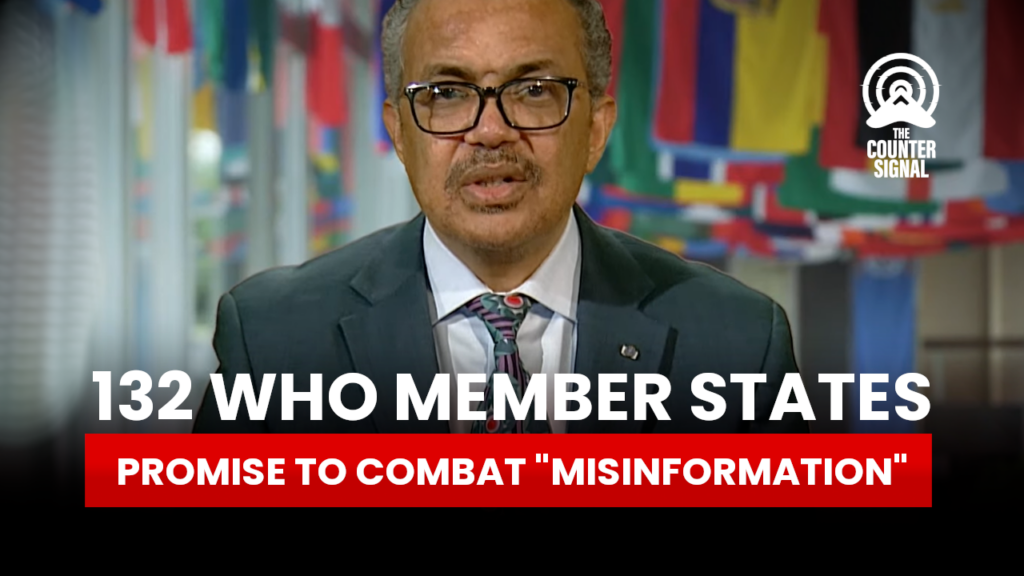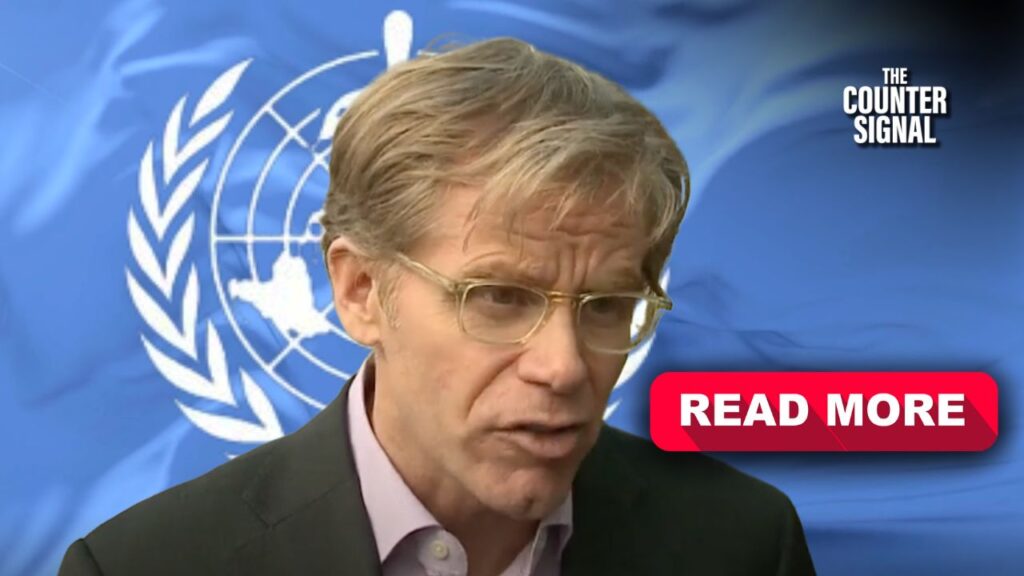A World Health Organization White Paper advocating for expanding WHO powers through the pandemic treaty puts tackling “infodemic” COVID “misinformation” at the top of their list.
Under the guise of “Community protection,” the WHO writes, “Infodemic of COVID-19 misinformation – often combined with ineffective and inconsistent risk communication and public health messaging – eroded public trust in public health authorities and science and undermined the effectiveness of public health and social measures and the demand for countermeasures such as vaccines.”
“… New techniques for infodemic management can counteract some of the corrosive effects of misinformation on public trust in science and authorities, but enduring trust and resilience must be built through effective engagement with communities before, during, and after health emergencies.”
According to the WHO, national governments should receive support to “coordinate risk communication and infodemic management policies and strategies that ensure health and wellbeing at all times” to build “misinformation” resilience.
The WHO further states that public health institutes should work with “influential private companies” to communicate the risk of misinformation and that social media should “develop infodemic management and community engagement tools.”
In other words, the WHO expects social media companies to continue doing what they’ve done throughout the pandemic: censor people and media organizations who go against the mainstream narrative.
But what’s an infodemic?
According to the WHO’s website, “An infodemic is too much information including false or misleading information in digital and physical environments during a disease outbreak. It causes confusion and risk-taking behaviours that can harm health.”
The WHO has further condemned infodemics for supposedly fomenting “conflict, violence, human rights violations and mass atrocities.” These are pretty serious assertions. Clearly, something must be done.
To this end, 132 Member States have signed a cross-regional statement to increase “societal resistance to disinformation” caused by infodemics.
As per the statement, “… We call on everybody to immediately cease spreading misinformation and to observe UN recommendations to tackle this issue, including the United Nations Guidance Note on Addressing and Countering COVID-19 related Hate Speech (11 May 2020).”
The statement continues, saying that the Member States should change their policies to align with the United Nation’s policies.
Despite the clear risk to freedom of expression posed by the WHO and UN’s recommendation, they say that their efforts are based “on freedom of expression, freedom of the press and promotion of highest ethics and standards of the press, the protection of journalists and other media workers, as well as promoting information and media literacy, public trust in science, facts, independent media, state and international institutions.”
The following Member States have signed the statement calling for a coordinated effort to end infodemics:
ALBANIA, ALGERIA, ANDORRA, ANGOLA, ARGENTINA, ARMENIA, AUSTRALIA, AUSTRIA, AZERBAIJAN, BANGLADESH, BARBADOS, BELARUS, BELGIUM, BHUTAN, BOLIVIA, BOSNIA AND HERZEGOVINA, BULGARIA, BURKINA FASO, CANADA, CHILE, COLOMBIA, COSTA RICA, CÔTE D’IVOIRE, CROATIA, CYPRUS, CZECH REPUBLIC, DENMARK, DJIBOUTI, DOMINICAN REPUBLIC, ECUADOR, EGYPT, EL SALVADOR, EQUATORIAL GUINEA, ERITREA, ESTONIA, ETHIOPIA, FIJI, FINLAND, FRANCE, GAMBIA, GEORGIA, GERMANY, GREECE, GUATEMALA, GUINEA, HONDURAS, HUNGARY, ICELAND, INDIA, INDONESIA, IRAQ, IRELAND, ISRAEL, ITALY, JAPAN, JORDAN, KENYA, LATVIA, LEBANON, LESOTHO, LIECHTENSTEIN, LITHUANIA, LUXEMBOURG, MADAGASCAR, MALAYSIA, MALDIVES, MALTA, MARSHALL ISLANDS, MAURITIUS, MEXICO, MOLDOVA, MONACO, MONGOLIA, MONTENEGRO, MOROCCO, MOZAMBIQUE, MYANMAR, NAMIBIA, NEPAL, NETHERLANDS, NEW ZEALAND, NIGERIA, NORTH MACEDONIA, NORWAY, PAKISTAN, PALAU, PANAMA, PAPUA NEW GUINEA, PARAGUAY, PERU, POLAND, PORTUGAL, QATAR, REPUBLIC OF KOREA, ROMANIA, RWANDA, SAINT KITTS AND NEVIS, SAINT LUCIA, SAINT VINCENT AND THE GRENADINES, SAN MARINO, SAUDI ARABIA, SENEGAL, SERBIA, SEYCHELLES, SIERRA LEONE, SLOVAKIA, SLOVENIA, SOUTH AFRICA, SOUTH SUDAN, SPAIN, SRI LANKA, SURINAME, SWEDEN, SWITZERLAND, THAILAND, TIMOR LESTE, TOGO, TONGA, TUNISIA, TURKEY, TURKMENISTAN, TUVALU, UGANDA, UKRAINE, UNITED KINGDOM, UNITED STATES OF AMERICA, URUGUAY, UZBEKISTAN, VENEZUELA (BOLIVARIAN REPUBLIC OF), YEMEN, STATE OF PALESTINE, and the EUROPEAN UNION.












